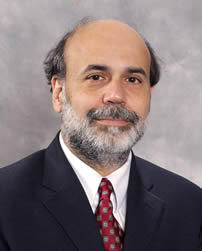Managers Rate Themselves Highly; Workers Not So Sure
Nearly all managers (92%) consider themselves to be an excellent or good boss. However, the latest Hudson survey found that employees do not necessarily agree.

Nearly all managers (92%) consider themselves to be an excellent or good boss. However, the latest Hudson survey found that employees do not necessarily agree.

The Hudson Employment Index (SM) rose one point to 102.9 in August, a moderate increase albeit the most substantial since May.

Forty-one percent (41%) of American adults have a favorable opinion of eBay while 16% have an unfavorable view.

Discover Business Card released the results of the inaugural Discover® Small Business Watch (SM) today, a new monthly Index of economic confidence of the nation’s 22 million small businesses with five or fewer employees.

Nearly 67% of owners of businesses with five or fewer employees are quite happy to have their companies remain small and 61% don’t expect to work for anyone else before they retire.

The Hudson Employment Index (SM) held steady at 101.9 in July, marking the third consecutive month that the measure of worker confidence has remained essentially unchanged.

While only 23 percent of U.S. employees work from home or are given that option, most of the work force (59 percent) believes that telecommuting at least part-time is the ideal work situation.

An inaugural survey of more than 600 private business owners in the United States whose companies employ at least 50 people showed decidedly mixed views on the current and future state of the U.S. economy.

After declining in May, U.S. worker confidence in the employment market held steady in June, as the Hudson Employment Index(SM) shifted up 0.1 points to 102.4.

A Rasmussen Reports survey conducted on June 28, 2006 found that 69% of Americans have a favorable opinion of Walmart, including 29% who have a very favorable opinion of the retail giant.

Thirty-six percent (36%) of Americans are very worried about inflation over the next year or so.

Rasmussen Reports said today that it will offer sponsorship opportunities for state and local market editions of the Rasmussen Consumer Index™, the company’s national measure of economic confidence.

When Federal Reserve Chairman Ben Bernanke speaks, financial markets tremble. In recent weeks, the Dow Jones Industrial Average (DJIA) has fallen hundreds of points in response to the new Chairman’s comments on the state of the economy.

Nearly two-thirds (65 percent) of investing Americans believe that those with more money are able to get better financial advice than those with less money.

U.S. worker confidence in the employment market declined in May, as the Hudson Employment Index fell 5.4 points to 102.3. Lowered optimism regarding personal finances and less anticipated hiring contributed to the drop.

A quarter century after Ronald Reagan rode the tax revolt to the White House, Americans continue to believe that tax cuts help the economy and tax hikes hurt.

Worker confidence in the U.S. labor market remained strong in April as the Hudson Employment Index(SM) climbed 1.5 points to 107.7. The April reading, which is 5.3 points higher than this time last year, was fueled by a surge in hiring expectations among employees and managers.

The number of workers expecting their employers to boost headcount in the coming months rose two points in April to an all-time high of 34 percent. Private sector workers were even more optimistic with 40 percent expecting their firms to add staff.

Coming off of a 15-month high of 108.2 in February, the Hudson Employment IndexSM fell two points in March to 106.2. While none of the factors influencing the Index reported any noteworthy changes, there was a slight easing of optimism virtually across the board.

One-quarter (23 percent) of U.S. workers who use a computer at work admit to having searched for a new job on their companies' time and resources, according to a new survey by Hudson.